Tyler HanI am currently a PhD student in the Paul G. Allen School of Computer Science & Engineering at the University of Washington. I am part of the Robot Learning Lab where I am advised by Byron Boots. I am also an NSF Graduate Research Fellow. Prior to UW, I completed my B.S. in Aerospace Engineering and B.S. in Computer Science at the University of Maryland, College Park. During my undergrad, I worked with Glen Henshaw and Patrick Wensing while at the Naval Research Laboratory in Washington, D.C. Email / GitHub / Google Scholar / LinkedIn / CV |

|
News
|
ResearchAnimals need only to observe a behavior a handful of times before imitating them through experience. However, current machine learning methods require orders of magnitude more data to imitate a demonstation. I am interested in methods which enable robots to attain the same level of efficiency and robustness as animals. |
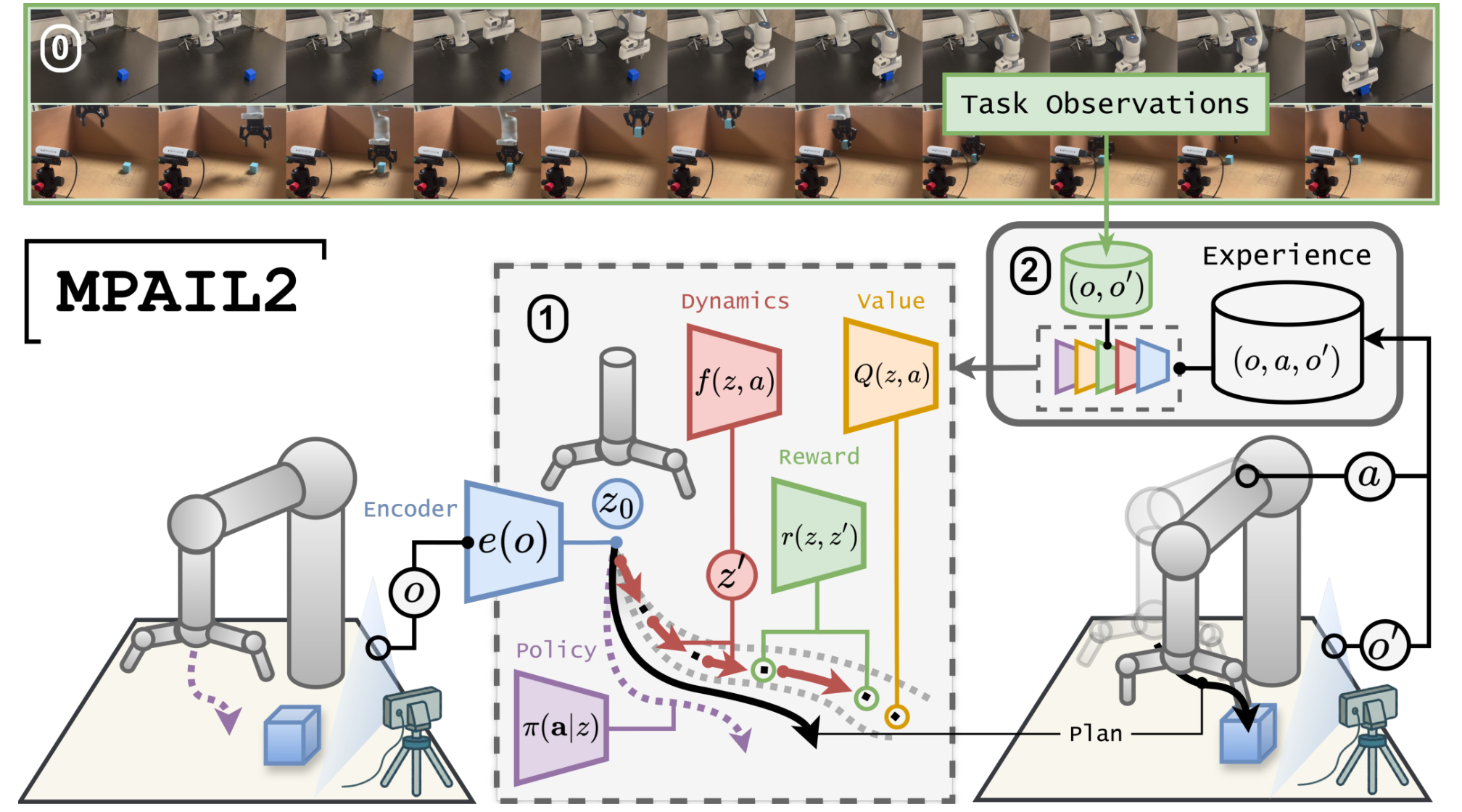
|
Planning from Observation and InteractionTyler Han, Siyang Shen, Rohan Baijal, Harine Ravichandran, Bat Nemekhbold, Kevin Huang, Sanghun Jung, Byron Boots website / paper soon Observational learning requires an agent to learn to perform a task by referencing only observations of the performed task. This work investigates the equivalent setting in real-world robot learning where access to hand-designed rewards and demonstrator actions are not assumed. To address this data-constrained setting, this work presents a planning-based [...] Observational learning requires an agent to learn to perform a task by referencing only observations of the performed task. This work investigates the equivalent setting in real-world robot learning where access to hand-designed rewards and demonstrator actions are not assumed. To address this data-constrained setting, this work presents a planning-based Inverse Reinforcement Learning (IRL) algorithm for world modeling from observation and interaction alone. Experiments conducted entirely in the real-world demonstrate that this paradigm is effective for learning image-based manipulation tasks from scratch in under an hour, without assuming prior knowledge, pre-training, or data of any kind beyond task observations. Moreover, this work demonstrates that the learned world model representation is capable of online transfer learning in the real-world from scratch. In comparison to existing approaches, including IRL, RL, and Behavior Cloning (BC), which have more restrictive assumptions, the proposed approach demonstrates significantly greater sample efficiency and success rates, enabling a practical path forward for online world modeling and planning from observation and interaction. [hide] |
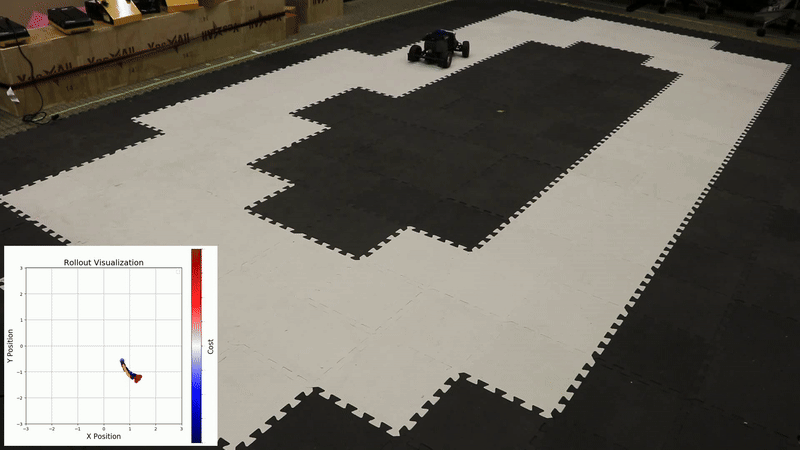
|
Model Predictive Adversarial Imitation Learning for Planning from ObservationTyler Han, Yanda Bao, Bhaumik Mehta, Gabriel Guo, Anubhav Vishwakarma, Emily Kang, Sanghun Jung, Rosario Scalise, Jason Zhou, Bryan Xu, Byron Boots International Conference on Learning Representations (ICLR), 2026 arXiv / OpenReview Best Paper Finalist, Resource-Rational Robot Learning Workshop, CoRL 2025 Humans can often perform a new task after observing a few demonstrations by inferring the underlying intent. For robots, recovering the intent of the demonstrator through a learned reward function can enable more efficient, interpretable, and robust imitation through planning. A common paradigm for learning how to plan-from-demonstration involves first [...] Humans can often perform a new task after observing a few demonstrations by inferring the underlying intent. For robots, recovering the intent of the demonstrator through a learned reward function can enable more efficient, interpretable, and robust imitation through planning. A common paradigm for learning how to plan-from-demonstration involves first solving for a reward via Inverse Reinforcement Learning (IRL) and then deploying it via Model Predictive Control (MPC). In this work, we unify these two procedures by introducing planning-based Adversarial Imitation Learning, which simultaneously learns a reward and improves a planning-based agent through experience while using observation-only demonstrations. We study advantages of planning-based AIL in generalization, interpretability, robustness, and sample efficiency through experiments in simulated control tasks and real-world navigation from few or single observation-only demonstration. [hide] |
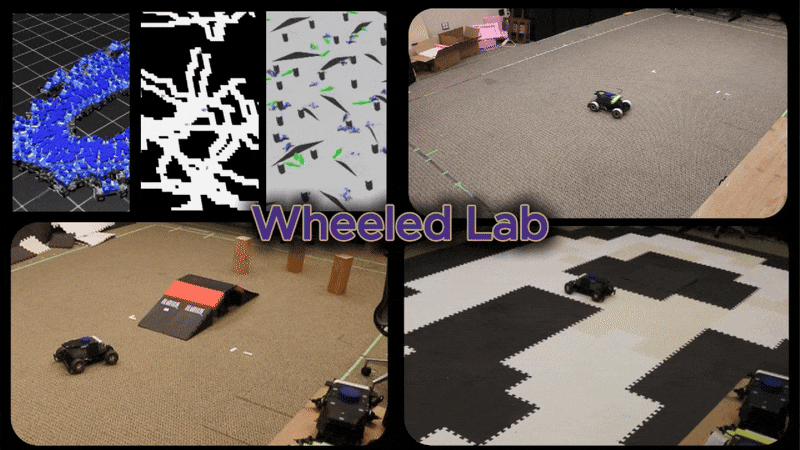
|
Wheeled Lab: Modern Sim2Real for Low-Cost, Open-Source Wheeled RoboticsTyler Han, Preet Shah, Sidharth Rajagopal, Yanda Bao, Sanghun Jung, Sidharth Talia, Gabriel Guo, Bryan Xu, Bhaumik Mehta, Emma Romig, Rosario Scalise, Byron Boots Conference on Robot Learning (CoRL), 2025 website / code / poster / arXiv / NVIDIA spotlight / Q&A video / tutorials Reinforcement Learning (RL) has been pivotal in recent robotics milestones and is poised to play a prominent role in the future. However, these advances can rely on proprietary simulators, expensive hardware, and a daunting range of tools and skills. As a result, broader communities are disconnecting from the state-of-the-art; education [...] Reinforcement Learning (RL) has been pivotal in recent robotics milestones and is poised to play a prominent role in the future. However, these advances can rely on proprietary simulators, expensive hardware, and a daunting range of tools and skills. As a result, broader communities are disconnecting from the state-of-the-art; education curricula are poorly equipped to teach indispensable modern robotics skills involving hardware, deployment, and iterative development. To address this gap between the broader and scientific communities, we contribute Wheeled Lab, an ecosystem which integrates accessible, open-source wheeled robots with Isaac Lab, an open-source robot learning and simulation framework, that is widely adopted in the state-of-the-art. To kickstart research and education, this work demonstrates three state-of-the-art zero-shot policies for small-scale RC cars developed through Wheeled Lab: controlled drifting, elevation traversal, and visual navigation. The full stack, from hardware to software, is low-cost and open-source. [hide] |

|
Distributional Successor Features Enable Zero-Shot Policy OptimizationChuning Zhu, Xinqi Wang, Tyler Han, Simon Du, Abhishek Gupta Neural Information Processing Systems (NeurIPS), 2024 website / code / arXiv Intelligent agents must be generalists, capable of quickly adapting to various tasks. In reinforcement learning (RL), model-based RL learns a dynamics model of the world, in principle enabling transfer to arbitrary reward functions through planning. However, autoregressive model rollouts suffer from compounding error, making model-based RL ineffective for long-horizon problems. [...] Intelligent agents must be generalists, capable of quickly adapting to various tasks. In reinforcement learning (RL), model-based RL learns a dynamics model of the world, in principle enabling transfer to arbitrary reward functions through planning. However, autoregressive model rollouts suffer from compounding error, making model-based RL ineffective for long-horizon problems. Successor features offer an alternative by modeling a policy’s long-term state occupancy, reducing policy evaluation under new rewards to linear regression. Yet, zero-shot policy optimization for new tasks with successor features can be challenging. This work proposes a novel class of models, i.e., Distributional Successor Features for Zero-Shot Policy Optimization (DiSPOs), that learn a distribution of successor features of a stationary dataset’s behavior policy, along with a policy that acts to realize different successor features achievable within the dataset. By directly modeling long-term outcomes in the dataset, DiSPOs avoid compounding error while enabling a simple scheme for zero-shot policy optimization across reward functions. We present a practical instantiation of DiSPOs using diffusion models and show their efficacy as a new class of transferable models, both theoretically and empirically across various simulated robotics problems. Videos and code: https://weirdlabuw.github.io/dispo/. [hide] |
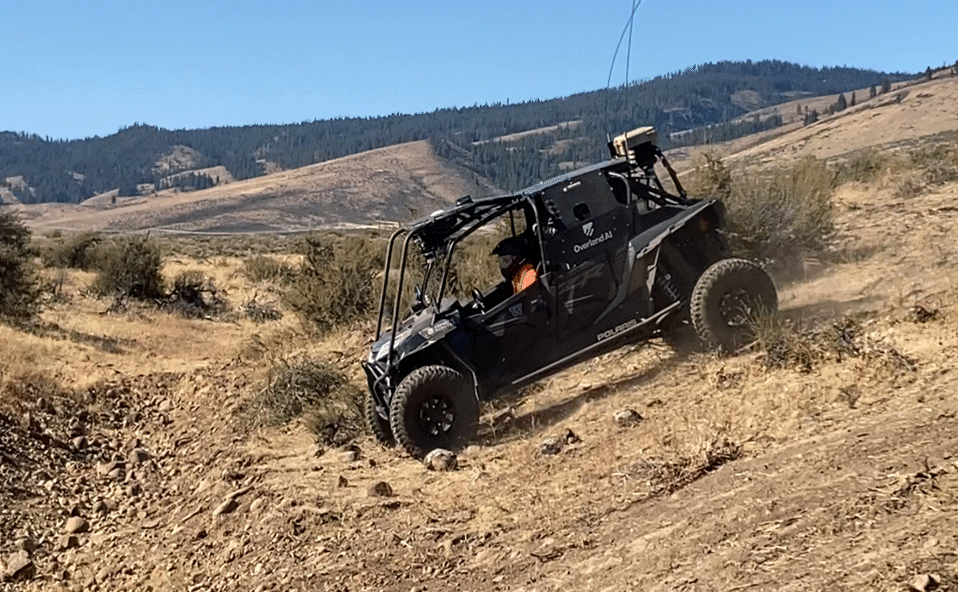
|
Model Predictive Control for Aggressive Driving over Uneven TerrainTyler Han, Alex Liu, Anqi Li, Alex Spitzer, Guanya Shi, Byron Boots Robotics: Science & Systems (RSS), 2024 website / arXiv Terrain traversability in unstructured off-road autonomy has traditionally relied on semantic classification, resource-intensive dynamics models, or purely geometry-based methods to predict vehicle-terrain interactions. While inconsequential at low speeds, uneven terrain subjects our full-scale system to safety-critical challenges at operating speeds of 7–10 m/s. This study focuses particularly on uneven terrain [...] Terrain traversability in unstructured off-road autonomy has traditionally relied on semantic classification, resource-intensive dynamics models, or purely geometry-based methods to predict vehicle-terrain interactions. While inconsequential at low speeds, uneven terrain subjects our full-scale system to safety-critical challenges at operating speeds of 7–10 m/s. This study focuses particularly on uneven terrain such as hills, banks, and ditches. These common high-risk geometries are capable of disabling the vehicle and causing severe passenger injuries if poorly traversed. We introduce a physics-based framework for identifying traversability constraints on terrain dynamics. Using this framework, we derive two fundamental constraints, each with a focus on mitigating rollover and ditch-crossing failures while being fully parallelizable in the sample-based Model Predictive Control (MPC) framework. In addition, we present the design of our planning and control system, which implements our parallelized constraints in MPC and utilizes a low-level controller to meet the demands of our aggressive driving without prior information about the environment and its dynamics. Through real-world experimentation and traversal of hills and ditches, we demonstrate that our approach captures fundamental elements of safe and aggressive autonomy over uneven terrain. Our approach improves upon geometry-based methods by completing comprehensive off-road courses up to 22% faster while maintaining safe operation. [hide] |
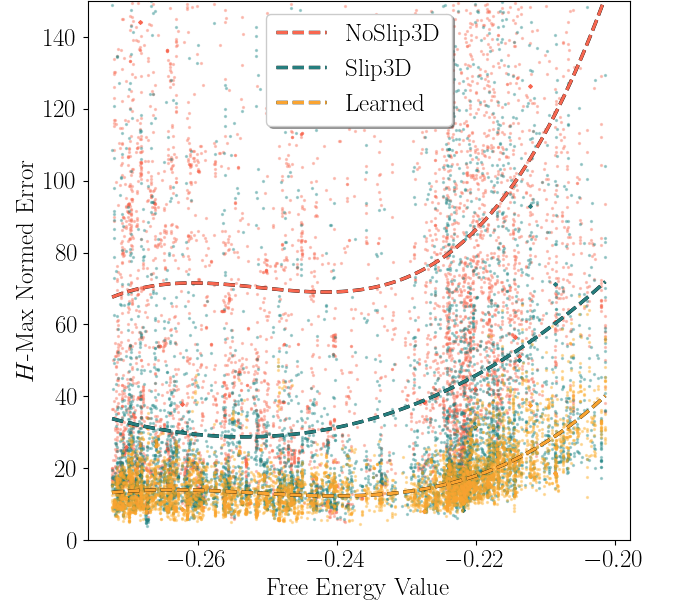
|
Dynamics Models in the Aggressive Off-Road Driving RegimeTyler Han, Sidharth Talia, Rohan Panicker, Preet Shah, Neel Jawale, Byron Boots Workshop on Resilient Off-Road Autonomy, ICRA, 2024 code / arXiv Current developments in autonomous off-road driving are steadily increasing performance through higher speeds and more challenging, unstructured environments. However, this operating regime subjects the vehicle to larger inertial effects, where consideration of higher-order states is necessary to avoid failures such as rollovers or excessive impact forces. Aggressive driving through Model [...] Current developments in autonomous off-road driving are steadily increasing performance through higher speeds and more challenging, unstructured environments. However, this operating regime subjects the vehicle to larger inertial effects, where consideration of higher-order states is necessary to avoid failures such as rollovers or excessive impact forces. Aggressive driving through Model Predictive Control (MPC) in these conditions requires dynamics models that accurately predict safety-critical information. This work aims to empirically quantify this aggressive operating regime and its effects on the performance of current models. We evaluate three dynamics models of varying complexity on two distinct off-road driving datasets: one simulated and the other real-world. By conditioning trajectory data on higher-order states, we show that model accuracy degrades with aggressiveness and simpler models degrade faster. These models are also validated across datasets, where accuracies over safety-critical states are reported and provide benchmarks for future work. [hide] |
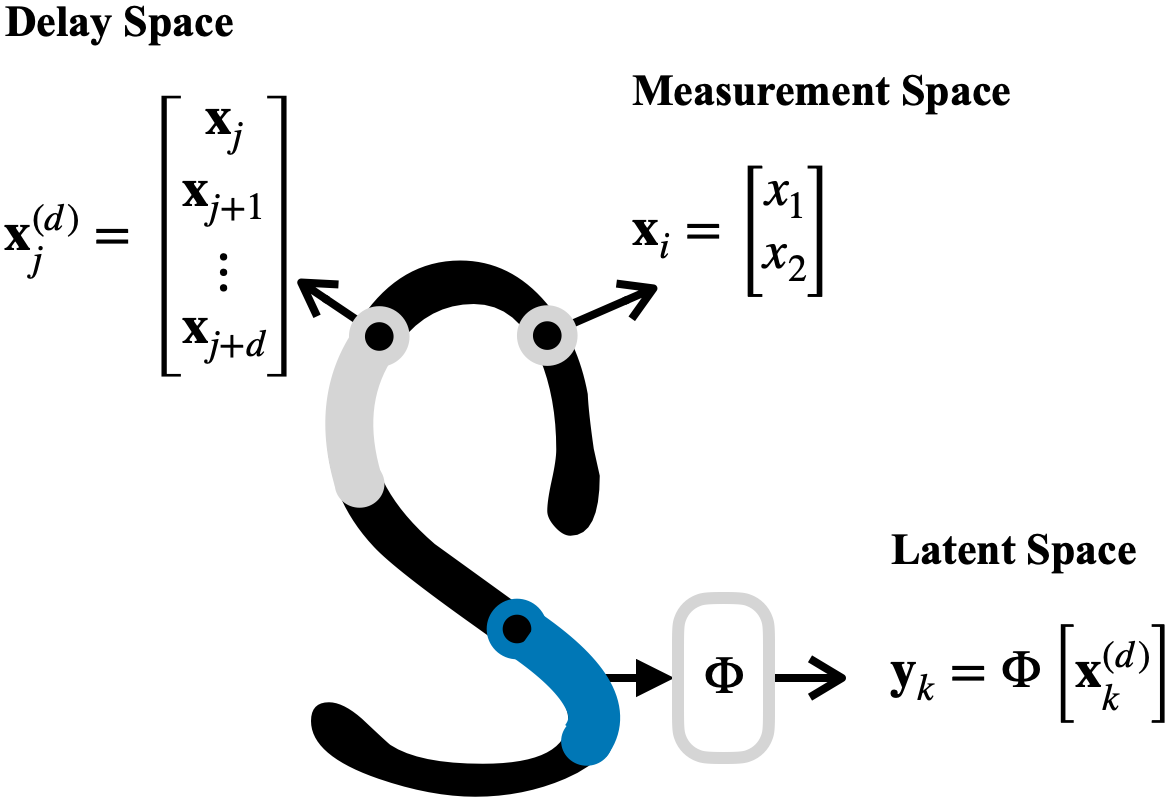
|
Learning Motor PrimitivesTyler Han, Carl Glen Henshaw arXiv preprint, 2021 arXiv In an undergraduate project, I tackled part of the challenge of teaching robots to perform motor skills from a small number of demonstrations. We proposed a novel approach by joining the theories of Koopman Operators and Dynamic Movement Primitives to Learning from Demonstration. Our approach, named Autoencoder Dynamic Mode Decomposition [...] In an undergraduate project, I tackled part of the challenge of teaching robots to perform motor skills from a small number of demonstrations. We proposed a novel approach by joining the theories of Koopman Operators and Dynamic Movement Primitives to Learning from Demonstration. Our approach, named Autoencoder Dynamic Mode Decomposition (aDMD), projects nonlinear dynamical systems into linear latent spaces such that a solution reproduces the desired complex motion. Use of an autoencoder in our approach enables generalizability and scalabil- ity, while the constraint to a linear system attains interpretability. We show results on the LASA Handwriting dataset but with training on only a small fractions of the letters. [hide] |
|
Forked from Leonid Keselman's Website |